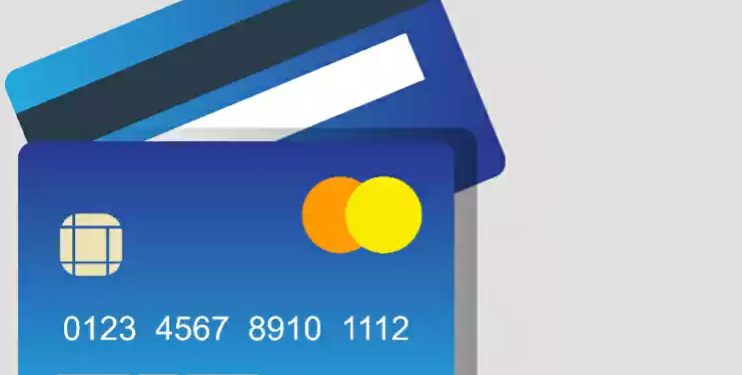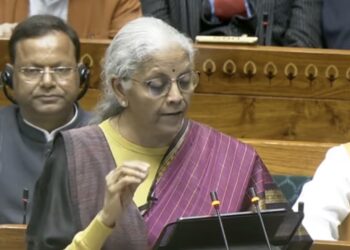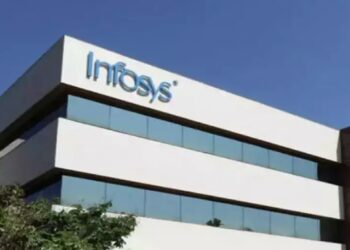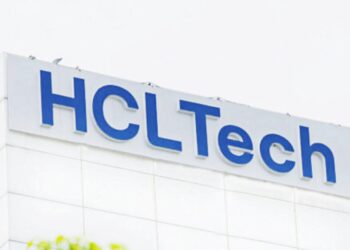Home Credit India has released its annual consumer study – How India Borrows (HIB) 2022 study. The HIB 2022 study concludes that more than 50% of the borrowers surveyed show preference & acceptability for EMI Cards when it comes to shopping or for any credit need. Overall, more than three-fourths of the borrowers led by Tier 1 & 2 cities and Gen Z/Millennials are optimistic and buoyant about digital lending services, owing to the rising popularity of online loans, convenience experienced, and faster adoption of digital lending.

The HIB study aims to understand the rapidly evolving consumer borrowing behavior as the economy undergoes a digital transformation in the post-COVID world. The survey was conducted across 16 cities including Delhi-NCR, Mumbai, Kolkata, Bengaluru, Hyderabad, Bhopal, Patna, Ranchi, Ahmedabad, Chandigarh, Chennai, Dehradun, Jaipur, Lucknow, Ludhiana, and Pune. The sample size is approx 1500 borrowers (Home Credit customers) in the age group of 18-55 years, with an average income of Rs. 30,000 per month.
The HIB 2022 shows the positive consumer borrowing trend that was the highlight of the 2021 study is going strong this year too, irrespective of the macroeconomic headwinds, with 75% of borrowers taking credit to buy consumer durables, home appliances, home renovation and business purposes. Owing to buoyant sentiments, more than 50% of borrowers showed a preference for EMI-Cards when it came to shopping or taking credit, followed by credit cards (25%), with new-age lending platforms including ‘Buy Now, Pay Later’ evidently losing out with less than 10% in favour. Borrowers view EMI Cards as trustworthy, with timely approvals & quick disbursals.
Similarly, 60% of borrowers, primarily Millennials/GenZ from Tier 1 & 2 cities (led by Bengaluru at 82%, Patna at 74%, Lucknow at 69%, Ludhiana at 68%, and Jaipur at 68%) have shown interest in ‘embedded finance‘, where e-commerce shopping can be converted to EMIs for affordable financing. Most of them believe embedded finance makes borrowing faster and eCommerce shopping easier.
Another major positive is the growing embrace of the digitalization of financial services. The HIB study states after showing affinity towards online loan journey last year, this time, 40% of borrowers led by Tier 1 & 2 cities (Jaipur at 55%, Pune at 48%, Ludhiana at 47%, Lucknow at 44%, Chandigarh at 43%) have shown a willingness to initiate loan application through WhatsApp chat in coming time. Chatbots, too, are not far behind in the tech-enabled financial services race, with one-third of borrowers, led by Tier 1 & 2 cities (Ahmedabad at 54%, Lucknow at 45%, Patna at 44%, Jaipur at 42%) showing trust & familiarity towards chatbots, a 13-point uptick from FY21. The adaptability towards online loan journey is also growing as over 50% of borrowers show affinity towards online loans, a 14-point increase from FY 21. On the same lines, borrowers have largely shown their comfort with mobile banking viz-a-viz Internet banking, especially in Tier 1 & Metros (Pune at 75%, Bengaluru 69%, Delhi-NCR 64%, Ludhiana at 63%, Ahmedabad at 62%, Mumbai 58%, with Bhopal lowest at 42%).
Speaking on the consumer study, Mr. Ashish Tiwari, Chief Marketing Officer of Home Credit India, said, “The big take away of this year’s How India Borrows study is the digital evolution of consumer credit in India, which is being driven by GenZ/Millennials from Tier 1 & 2 cities. The key borrowing trends point to the emergence of Embedded Finance phenomena leading to the popularity of EMI financing. The new-age consumers are now not averse to going for loans or credit especially small-ticket size to fulfill aspirations and live their life to fullest. Along with it, they are fast embracing new digital tools or platforms to ensure access to affordable and convenient credit. As most borrowers are optimistic about the future of digital lending services, they are also aware of its pitfalls and so, want to become financial literate.”
Financial Literacy is fast becoming a serious topic of concern & discussion amongst evolving borrowers in the post-pandemic world. The survey shows 40% of borrowers across demographics and regions want to attain financial education, including personal finance from reputed organizations, driven by Tier 1 & 2 cities. With Bengaluru, Hyderabad and Ludhiana leading, Jaipur, Ranchi and Pune to follow.
On a region-wise outlook, the north, east, west and south have their own characteristics. North India region has shown resonance with initiating loan applications on WhatsApp chat and online loan journey. East India has shown its affinity strongly towards online shopping, trust in chatbots and having financial service apps on smartphones. West India has an inclination towards mobile banking and initiating loan applications on WhatsApp chat. And South India is interested in financial literacy and embedded finance.
Respondents interviewed during the research also highlighted that with some handholding and guidance on financial and digital literacy will ensure their loan journey is completed hassle-free and independently.
About Home Credit India
Home Credit India Finance Pvt. Ltd. is a local arm of the international consumer finance provider Home Credit International with operations spanning Europe and Asia and committed to driving financial inclusion in India. The company is committed to driving credit penetration and financial inclusion by offering wide financial solutions that are simple, transparent, and accessible to all. Home Credit India has an employee base of ~5000 and has been consistently expanding operations since its entry in 2012, with its operations spread over 625 cities across India. The company has a strong network of around 53,000 points-of-sale (PoS). It is growing with a customer base of 15 million customers, driven by Pan-India expansion across major markets, a range of diversified and innovative products backed by superior customer experience.
For more information, visit www.homecredit.co.in.
(Only the headline of this article may have been edited by the CXOvoice team, the rest of the content is auto-generated from a syndicated feed.)




















